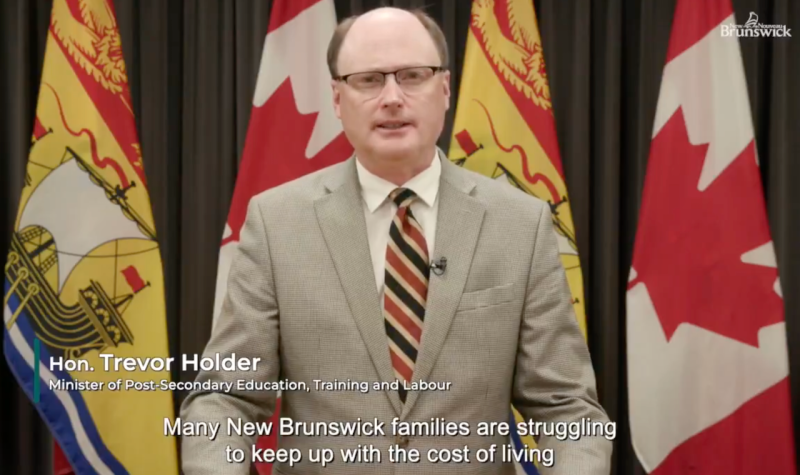New Brunswick’s minimum wage went up by one dollar on Saturday, to $13.75 per hour. It’s the second increase this year, after another one dollar hike in April. The raise is a departure from the year before, in April 2021, when New Brunswick’s minimum wage went up by just 5 cents.
Janelle LeBlanc is provincial coordinator for the Common Front for Social Justice which runs campaigns around public services, pay equity, employment standards and social assistance. LeBlanc says that increase won’t seem like much for workers, relative to increases in cost of living.
“The government of New Brunswick has been saying this is a big increase, but if you consider inflation rates and the cost of living that skyrocketed this year, people are really, really struggling to make ends meet,” says LeBlanc. “There’s more people in debt this year, more people using their credit cards to buy essential items. And according to the government’s stat, there are more people working minimum wage jobs. So that means there’s more people who are low income and having trouble making ends meet.”
In a press release at the end of 2021, the province said there were 15,500 people earning less than the then-minimum wage of $11.75, and another 30,000 people earning less than $13.75 per hour. The release also stated the $2 raise in 2022 represented a 17% hike, the largest increase to New Brunswick’s minimum wage since 1980. Minister Trevor Holder called the increase “critically important” and said it would “help improve the standard of living of our lower-wage earners and ensure we are competitive with our neighbouring provinces.”

The raise on Saturday puts New Brunswick’s minimum wage highest in the Maritimes for the time being, but both PEI and Nova Scotia have announced plans to further increase their minimum wages. PEI will hit $15 per hour after two more increases in January and October 2023. Nova Scotia will hit the $15 level a little later, by spring 2024. New Brunswick has announced no plans past the 2022 raise in minimum wage, instead saying it will revert to increases tied to the consumer price index.
“Any increase in minimum wage is obviously welcome,” says LeBlanc, but the Common Front is calling for a more dramatic increase, to bring it up to the standard of a living wage as outlined by the Human Development Council. In 2021, the HDC estimated a living wage for the Moncton area at $18.65 per hour, and it varied throughout the province going as low as $17.50 in Bathurst to $21.20 in Fredericton. LeBlanc says the Common Front is advocating for a $20 minimum wage, representing an average of living wages around the province.

Leblanc says that with the current increase, the income of a full time minimum wage worker still puts them below the Low Income Measure, one threshold for measuring poverty used by Statistics Canada, which is calculated as 50% of median income.


